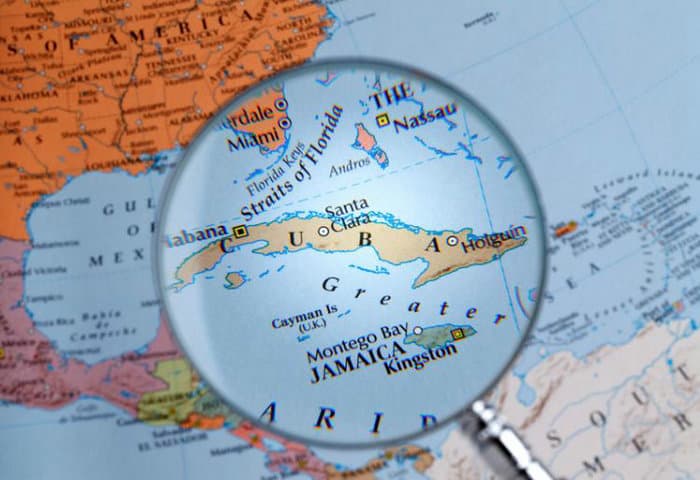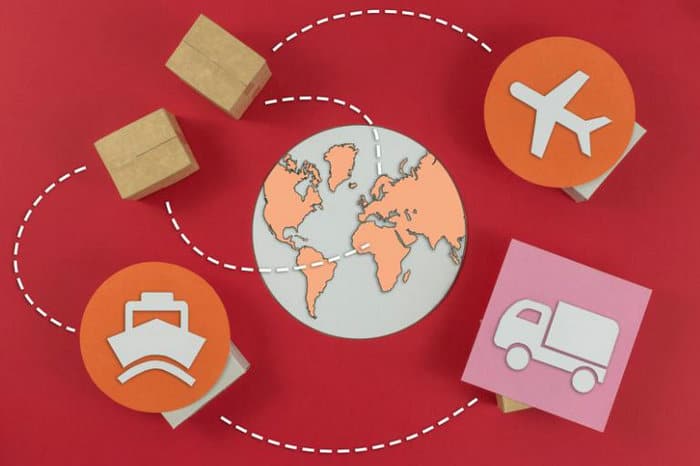
Shipping goods internationally can be complicated, especially when considering the trade route from China to Cuba. Your understanding of both countries’ customs regulations, shipping methods, and the political relationship that encompasses trade agreements is crucial. When you are planning to ship products from China to Cuba, the choices you make in terms of carriers, shipping routes, and logistics partners will significantly impact cost, transit time, and the overall success of your shipment.
It is important to recognize that certain restrictions and challenges may arise due to Cuba’s unique economic system and its relationship with the global market. You should be aware of the trade sanctions and licensing requirements that could affect the movement of your goods. Moreover, exploring various shipping options, including sea and air freight, will allow you to balance speed and budget according to your shipment’s needs.
When you arrange shipping from China to Cuba, aligning yourself with experienced freight forwarders can ease the process. These experts can help navigate customs clearance complexities and advise on the best practices for packing, documentation, and insuring your cargo. They can also inform you of any changes in international trade laws that might affect your shipment. By staying informed and choosing the right partners, you can ensure your shipping experience is as smooth and efficient as possible.
Overview of Shipping from China to Cuba
When shipping from China to Cuba, you have multiple freight options. Your choice depends on the cargo’s size and type, and how quickly you need it delivered. The major ways to ship from China to Cuba include air and sea freight.
Air Freight:
- Fast: Typically takes around 3-5 days.
- Costly: More expensive than sea freight.
- Ideal for: Urgent or high-value shipments.
Sea Freight:
- Economical: Less expensive compared to air freight.
- Slow: Transit time can range from 20 to 60 days.
- Capacity: Suitable for large or bulky shipments.
Documentation Needed:
- Commercial invoice
- Packing list
- Bill of lading or airway bill
- Import/export declaration
- Certificate of Origin
The customs regulations in Cuba can be strict, so ensure all your paperwork is accurate and complete. Incorrect or missing documentation can lead to delays or penalties.
The ports in China and Cuba play a vital role. Principal ports in China include Shanghai, Shenzhen, and Guangzhou, while the port of Mariel is a key gateway in Cuba.
Lastly, working with experienced freight forwarders who understand Chinese and Cuban shipping regulations is advisable. They can help navigate the complexities of international logistics and ensure your shipment arrives safely and on time.
Logistical Considerations
When shipping from China to Cuba, your key focus involves understanding ports of origin, destination ports, and the shipping routes connecting these points.
Major Seaports
China has several major ports that handle international shipping. It would be best to consider your supplier’s proximity to these ports to minimize domestic transportation costs.
Once your shipment reaches Cuba, the main port of entry is the Port of Havana, which is well-equipped for receiving cargo. Confirming that your recipient in Cuba can receive shipments at the intended port is essential.
| Main Ports in China | Main Ports in Cuba |
| Shanghai | Havana |
| Hong Kong | Cienfuegos |
| Shenzhen | Santiago de Cuba |
| Ningbo | Mariel |
| Qingdao | |
| Guangzhou | |
| Tianjin | |
| Dalian | |
| Xiamen |
Major Airports
| Main Airports in China | Main Airports in Cuba |
| Beijing Capital International Airport (PEK) | José Martí International Airport (HAV), Havana |
| Shanghai Pudong International Airport (PVG) | Juan Gualberto Gómez Airport (VRA), Varadero |
| Guangzhou Baiyun International Airport (CAN) | Frank País Airport (HOG), Holguín |
| Shenzhen Bao’an International Airport (SZX) | |
| Hong Kong International Airport (HKG) |
Shipping Routes
Your shipping route from China to Cuba generally involves a Pacific crossing, potentially transiting through the Panama Canal, which is a key conduit for Asia-Americas trade. International freight lines such as Maersk, COSCO, and CMA CGM operate on these routes, offering different transit times and costs. Selecting a route that balances speed and expense is critical, depending on your specific shipping needs.
Shipping Methods

When it comes to shipping from China to Cuba, you have various methods at your disposal, each offering different benefits depending on your cargo’s size, weight, and how quickly you need it delivered.
Sea Freight Options
- Full Container Load (FCL): Ideal for transporting large volumes, FCL shipping allows you to rent an entire container. Your goods are sealed and unopened until they reach their destination, ensuring exclusivity.
- 20-foot container: Can typically hold 10 standard pallets.
- 40-foot container: Accommodates about 20-22 standard pallets.
- Less than Container Load (LCL): For smaller shipments, LCL shipping gives you the flexibility to pay only for the space you use within a shared container.
- Cost-effective: Charged per volume (cubic meter) used.
- Flexibility: Ships goods of various sizes without needing a full container.
Air Freight Logistics
- Regular Cargo Flights: Air freight from China to Cuba can be faster than sea freight, which is suitable for time-sensitive shipments. You’re generally charged based on weight and volume.
- Standard Dimensions: Airing Cargo has specific size and weight restrictions that must be considered.
- Chartered Flights: Chartering aircraft might be the best option for urgent delivery. Tailor for urgent or oversized shipment schedules offers greater flexibility.
- Customizable: Schedule and route adjustments to meet unique shipping needs.
Courier and Parcel Services
Express Shipping: When your shipment is urgent or small, express couriers ensure fast delivery, often within days.
- Tracking: Real-time updates and door-to-door service.
- Premium Cost: Higher rates reflective of the speed and convenience.
Costs and Pricing Strategy
When shipping to Cuba from China, understanding the shipping costs involved and implementing a strategic pricing approach are essential for a cost-effective and competitive operation.
Cost Components
- Shipping Rates: These are the charges you’ll pay to transport goods from origin to destination, varying with the mode of transport (air, sea, or land).
- Sea Shipping: Typically calculated per container (20ft or 40ft) or per cubic meter for less-than-container loads (LCL).
- Air Shipping: Usually more expensive than sea freight, priced by weight or volume.
- Fuel Surcharges: The fluctuating cost of fuel affects the overall price, with surcharges updating regularly to reflect current fuel prices.
- Customs Clearance Fees: In both China and Cuba, customs brokerage fees include costs for document preparation and submission, duty and tax calculations, and payment handling.
- China Export Fees: Handling and documentation fees for goods leaving China.
- Cuba Import Fees: Charges for importing goods into Cuba, which might include inspection fees.
- Packing Costs: Ensuring your shipment is securely packed can involve different expenses, such as materials and labor.
- Insurance Costs: Shipping insurance protects your cargo against loss or damage during transit, priced as a percentage of the cargo’s value.
- Other Tariffs and Taxes: Keep in mind various tariffs or taxes that might apply specific to the nature of the goods or bilateral trade agreements.
Budgeting for Shipment
Creating a comprehensive shipment budget necessitates accounting for all potential costs and maintaining some flexibility for unexpected expenses.
- Document All Expected Costs:
- List down all the known charges, taxes, and surcharges using a spreadsheet or accounting software to keep track of the expected budget.
- Plan for Fluctuations and Contingencies:
- Allocate an additional percentage (usually 5-10%) of the total expected cost to cover fluctuations in freight rates, fuel surcharges, exchange rates, or unforeseen charges.
By diligently analyzing cost components and preparing a thorough budget, you align your shipping strategy with the financial realities of international logistics and avoid unexpected expenses.
Time Considerations
When shipping goods from China to Cuba, you need to be aware of the transit and handling times, which can significantly affect the delivery schedule.
Estimated Transit Time
Shipping by sea from China to Cuba generally takes approximately 20 to 60 days, depending on the route and the service chosen. Certain variables like weather conditions, the specific shipping line, and the chosen sea route can impact this transit time.
Air freight shipping time from China to Cuba is about 3 to 5 days, depending on various situations.
It’s crucial to note that these times are estimates, and actual transit times may vary.
Handling Times at Ports
When your shipment arrives at the port, the handling time is the next consideration. This includes the unloading, customs clearance, and preparation for inland transportation. Here’s what you can expect:
| Chinese Ports | Cuban Ports | |
| Average Handling Time | 2-5 days | 3-7 days |
Keep in mind that handling times can be affected by port congestion, customs delays, and local regulations. Make sure to plan for these potential delays to ensure a smooth shipment process.
Documentation for Shipping
When shipping containers from China to Cuba, you’ll need to ensure that all necessary documentation is prepared and compliant with both countries’ regulations to avoid any delays or complications during transportation.
Required Export Documents
- Export Declaration: Before goods can leave China, you must submit an Export Declaration to Chinese customs. It should detail the type of goods, their value, and destination.
- Commercial Invoice: This document is crucial for international shipping and must accurately list the value, quantity, and description of the goods shipped.
- Packing List: The packing list complements the commercial invoice and provides details about the packing of the shipped goods, including weight and volume.
- Bill of Lading (B/L): Issued by the carrier, the B/L is a contract between you and the shipping company detailing the terms of the cargo transport and serves as a receipt of goods.
- Certificate of Origin: A document that certifies where the goods were made. It is important for customs clearance in Cuba.
Import Documentation in Cuba
- Import License: Certain goods may require an import license in Cuba. You should check with Cuban authorities if your goods need this document.
- Commercial Invoice: Like in the export process, the commercial invoice should reflect the true value and description of the goods entering Cuba.
- Bill of Lading (B/L) or Air Waybill: These documents must accompany the cargo and be presented upon arrival for validation and customs clearance.
- Sanitary and Phytosanitary Certificates: If you’re shipping agricultural products, these certificates ensure that the goods comply with Cuba’s health and safety regulations.
- Customs Declaration: Upon arrival in Cuba, a customs declaration must be completed detailing the imported goods and their value.
Customs and Compliance

When shipping cargo from China to Cuba, you should be aware of the regulations that govern exports in China and the requirements for imports into Cuba. Ensuring compliance with these rules is essential for a smooth transaction.
Chinese Export Regulations
In China, exporters must register with the Ministry of Commerce or with local commerce authorities. Your registration allows you to obtain an Export License, which is necessary for customs clearance. Specific goods like electronics, textiles, and certain raw materials may require additional licenses or permits. Check for updated lists and regulations on the official Ministry of Commerce website or consult with a customs broker. Moreover, when exporting from China, always ensure that your goods comply with the following mandatory requirements:
- Correct labeling
- Safety and quality standards
- Export tariff payment
- Product-specific regulations
Cuban Import Requirements
Upon entering Cuba, your shipment must meet Cuban import regulations. All imports require a Commercial Invoice and Bill of Lading or Air Waybill. Cuba has a list of prohibited items that you must not import into the country, including satellite communication equipment and unauthorized drugs. Additionally, food and agricultural products are subject to inspections and must meet health and safety standards.
For imports into Cuba, always consider:
- Sanitary and Phytosanitary Measures for food and agricultural products.
- Customs Valuation: Determine the import duty, which is based on the transaction value of the goods.
- Restrictions on Quantities and Licensing: some goods may have import quotas or require import licenses.
Insurance and Risk Management
In shipping goods to Cuba, you need a solid understanding of various insurance options for shipping and strategies to mitigate transit risks, ensuring your goods arrive safely and your financial investment is protected.
Insurance Options
When transporting goods from China to Cuba, you have multiple insurance options to consider:
- All-Risk Insurance: This coverage typically protects against all risks of physical loss or damage from any external cause.
- Named Perils Insurance: This policy covers only losses arising from perils that are specifically listed in the policy, such as fire, theft, or weather damage.
- Total Loss Only (TLO) Insurance: Offers compensation only when the shipment is completely lost or damaged beyond repair.
It’s crucial to review the terms and premium costs of each policy to match your coverage needs.
Mitigating Transit Risks
To minimize risks during transit, adopt the following strategies:
- Packaging: Ensure your goods are properly packaged for the long journey, using materials that can withstand handling and shifts in weather.
- Container Selection: Use suitable containers that provide security and protection against the elements.
By carefully selecting insurance and employing risk mitigation tactics, you enhance the security of your shipping endeavors.
Challenges and Solutions
Effective shipping from China to Cuba involves navigating a series of challenges, but with strategic problem-solving, you can streamline the process.
Common Shipping Challenges
- Logistics Hurdles
- Shipping routes between China and Cuba are not as direct as those to some other regions. This can lead to prolonged transit times and an increased risk of delay or cargo mishandling. Additionally, the limited number of shipping companies that operate direct routes may affect frequency and capacity.
- Customs and Regulations
- Cuba has complex customs regulations that can be challenging to navigate without proper knowledge. Mistakes in documentation or non-compliance with import/export laws can result in delays, fines, or seizure of goods.
- Key Documentation Issues:
- Inaccurate or incomplete shipping manifests
- Lack of required certifications or licenses
- Language and Cultural Differences
- Differences in language and business culture can lead to communication barriers. These misunderstandings can complicate negotiations and contractual agreements, leading to delays and possible financial loss.
Problem-Solving Strategies
- Strengthening Supply Chain Networks
- Building relationships with reliable carriers and logistics partners can help bypass common route inefficiencies. Consider consolidating shipments to maximize container space and cost-effectiveness.
- Actionable Steps:
- Identify reputable shipping agents with experience in China-Cuba routes.
- Leverage bulk shipping options when feasible.
- Ensuring Compliance
- Familiarize yourself with Cuba’s customs policies and ensure that all paperwork is meticulously completed and compliant with local laws.
- Checklist for Compliance:
- Verify that all goods are correctly classified and declared.
- Confirm that all necessary permits and licenses are obtained and valid.
- Bridging Communication Gaps
- Hiring bilingual staff or working with local agents can mitigate language barriers. Understanding cultural nuances can also lead to smoother business transactions.
- Communication Enhancements:
- Utilize translation services for contracts and communications.
- Engage with cultural training programs to foster better business relations.
Emerging Trends
In the realm of shipping from China to Cuba, two key emerging trends are revolutionizing the industry: innovative technologies that enhance efficiency and the growing adoption of sustainable practices.
Technological Advancements
You will find that technological advancements are drastically improving the efficiency of shipping routes from China to Cuba. Smart containers equipped with IoT sensors now provide real-time tracking and condition monitoring, ensuring that you have constant visibility of your cargo. Additionally, digital platforms for logistics management facilitate smoother operations and reduce paperwork, leading to faster processing and clearance times.
- IoT Sensors: Track location/movement
- Digital Platforms: Streamline operations
Sustainability in Shipping
Your shipping experience from China to Cuba is becoming greener through sustainability efforts. Companies are increasingly adopting low-emission ships and alternative fuels, such as liquefied natural gas (LNG), to reduce the environmental impact.
- Low-Emission Ships: Cut down on pollutants
- Alternative Fuels: Reduce carbon footprint
By leveraging these trends, you not only contribute to a healthier planet but may also see reductions in costs and improvements in shipping timelines.
Why Choose Us? Luckystar Logistic
Luckystar is a distinguished freight forwarding company founded in 2022. As a licensed Non-Vessel Operating Common Carrier (NVOCC) with the Federal Maritime Commission (FMC), Luckystar specializes in providing economical global shipping solutions with excellent service. Led by a veteran logistics team with over 20 years of industry expertise, Luckystar is dedicated to supplying dependable, flexible, and responsive international door-to-door freight transport and efficient shipping services from China to Cuba.
Here’s why partnering with Luckystar is advantageous:
- Reliable On-Time Delivery: We minimize delivery delays, ensuring timely shipment arrival, which is vital for businesses to swiftly supply goods to customers.
- Global Shipping Reach: We ship to virtually any location worldwide, presenting tremendous global growth opportunities for businesses wanting to expand their reach abroad.
- Easy Shipment Tracking: Our stringent processes enable live tracking, letting you easily monitor shipment progress at every transportation stage for peace of mind.
- Personalized End-to-End Service: A dedicated Luckystar team member personally supervises your door-to-door shipment from start to finish while proactively updating you throughout for transparency.
When dealing with hazardous materials, it’s vital to engage seasoned shipping experts, guaranteeing safe, compliant handling. Partnering with Luckystar gives you confidence that your hazardous goods shipments are in capable hands.
Seeking an accomplished freight forwarder? Contact Luckystar – we eagerly assist companies in expertly shipping cargo internationally at extremely affordable shipping rates. We offer the best air and sea shipping services to Cuba from China. Don’t wait; reach out now to leverage our unparalleled cheap international shipping!
